The motorcycling lawyer searching Guatemala to reunite families the US split apart
Eriberto Pop is on a mission, with his motorcycle he has declared to do whatever he can, writes Keven Sieff
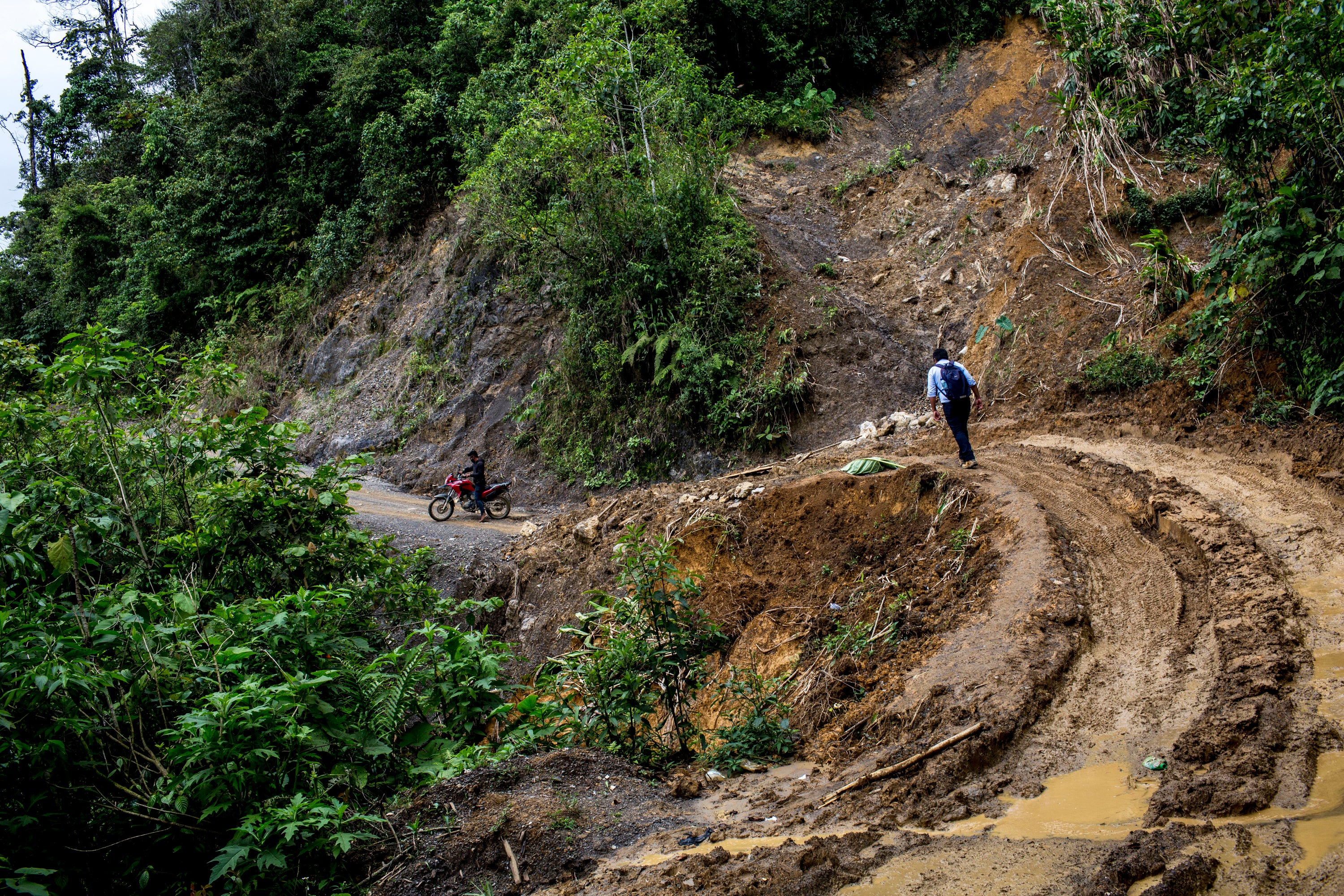
Your support helps us to tell the story
From reproductive rights to climate change to Big Tech, The Independent is on the ground when the story is developing. Whether it's investigating the financials of Elon Musk's pro-Trump PAC or producing our latest documentary, 'The A Word', which shines a light on the American women fighting for reproductive rights, we know how important it is to parse out the facts from the messaging.
At such a critical moment in US history, we need reporters on the ground. Your donation allows us to keep sending journalists to speak to both sides of the story.
The Independent is trusted by Americans across the entire political spectrum. And unlike many other quality news outlets, we choose not to lock Americans out of our reporting and analysis with paywalls. We believe quality journalism should be available to everyone, paid for by those who can afford it.
Your support makes all the difference.The missing family on Eriberto Pop’s list had to be around here, he thought.
He had spent eight hours in a car and several more on a motorcycle to get to this remote hamlet in the western Highlands of Guatemala. Now he looked up at the muddy slope rising before him, the road disappearing into the hillside. This last stretch he would have to do on foot.
He stuffed the US government records in his backpack. There was a note printed at the bottom of the first page, a dispatch from the Biden era that had made its way here: “Do whatever you can to find the family.”
More than four years after the Trump administration began separating migrant families at the border, Pop is among a handful of searchers trying to find the parents deported alone to some of the farthest-flung corners of Central America. Two hundred and seventy-five of them are still missing.
Most of their children remain in the United States with relatives or foster families. Some were babies when Border Patrol agents took them from their parents; they’ve now lived most of their lives apart from them.
The Biden administration has agreed to reunify those families in the United States – a reparation for the most controversial US immigration policy in decades. The hardest part has been simply locating the parents.
The Trump administration kept little data on the families that were separated. In many cases, only scraps of information remain: a deported parent’s name, a village in Guatemala or Honduras, a phone number that may no longer work.
That information makes its way from the US government through a chain of legal organisations and eventually to people such as Pop, 33, a human rights lawyer in Guatemala’s Alta Verapaz department who is crisscrossing the country in search of the missing parents.
While the Biden administration has publicised its Family Reunification Task Force, it has left the work of finding parents to small civil-society organisations
He has a baby face, wears a collared shirt and carries a black backpack. Away from his oneroom law office, stacked with legal briefings and books on the Mayan legal code, he is sometimes mistaken for a student.
Pop is paid an hourly rate for the work. He often sleeps on the floors of schoolhouses. His motorcycle has been swept away by flooding rivers.
He has plastered the walls of Indigenous villages with fliers printed in bold letters: “SEPARATED FAMILIES.”
“If you have been deported recently…”
“If your child is still in the United States…”
“We can put you in touch with American lawyers to speak about your reunification options.”
While the Biden administration has publicised its Family Reunification Task Force, it has left the work of finding parents to small civil-society organisations, which the government believes are more trusted on the ground. The result can seem bizarre: a Guatemalan volunteer on a rented motorcycle trying to deliver on a promise from the White House.
Even before the Biden push, Pop had been doing this work and by this spring, after more than a year of searching, Pop had found 80 parents. In Chicamán, he was searching for the father who might be his 81st.
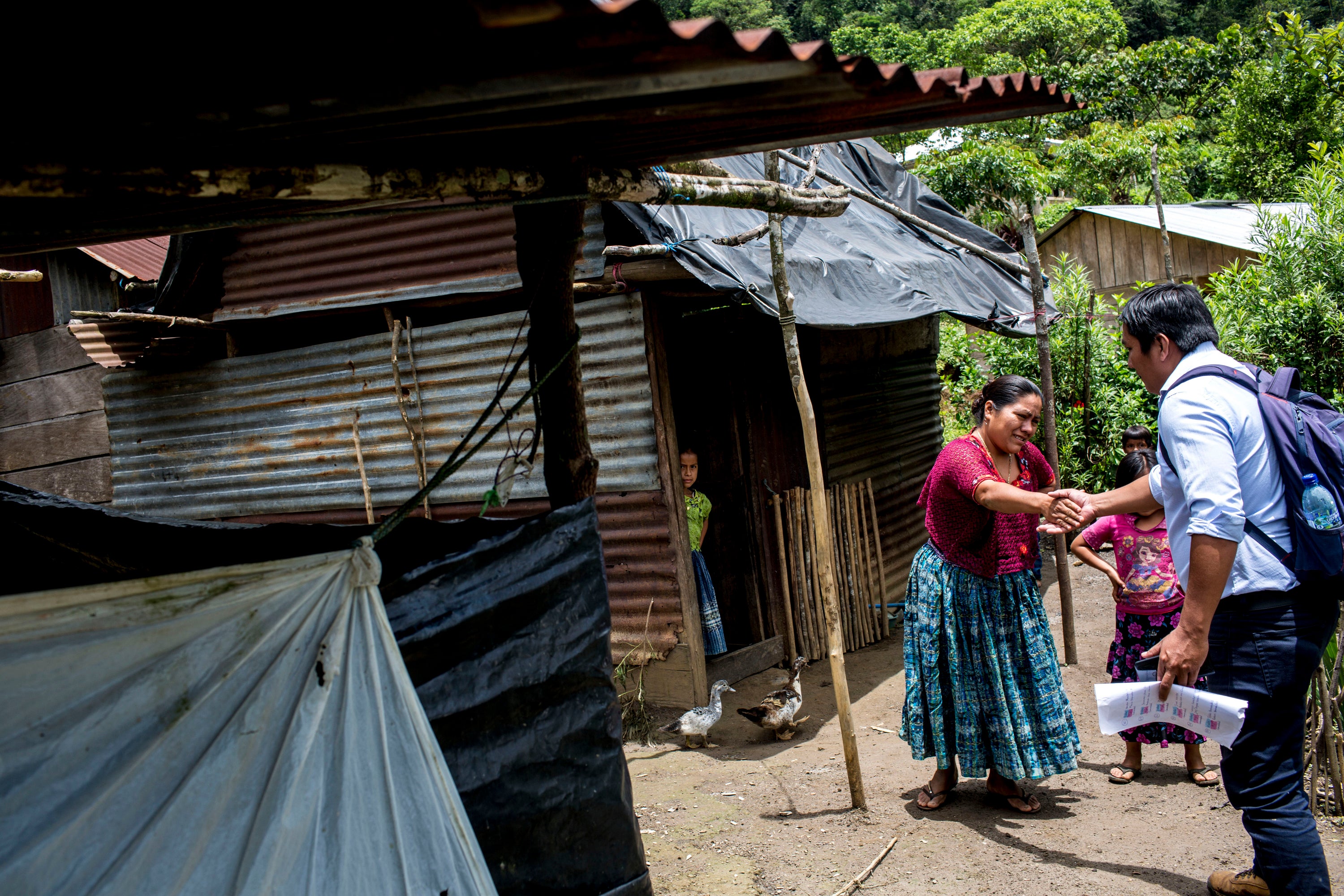
A description of the man had come to him in an email from a Brooklyn-based non-profit group called Justice in Motion. It included his name but few other details. Pop printed out the message and slid it into his backpack.
“Every search is a little different,” Pop says. “Did the family move? Are they hiding? Did the parent try again for the United States? Sometimes you knock on the door and there’s no one there.”
He keeps a list of the parents he hasn’t been able to find. They remain, in the parlance of the US reunification effort, “unreachable”.
Pop parked his motorcycle and started to climb the hill. His loafers were quickly covered in mud. A farmer stared at him. Pop waved and asked for directions.
The farmer pointed to a hut that was being overtaken by the earth around it. It looked like a freeze-frame of a landslide in progress.
Moments like this occurred frequently – when Pop arrived at an address that appeared to be uninhabitable, when he imagined adding another name to the “unreachable” list. Another dead end.
This time he said it out loud: “This whole place feels like it’s about to be destroyed.”
Then a woman stepped out from the tangle of branches that surrounded the hut. She wore a hand-embroidered blouse and plastic sandals. Her hair was pulled back tightly in a bun; a pendant of the Virgin Mary hung from her neck.
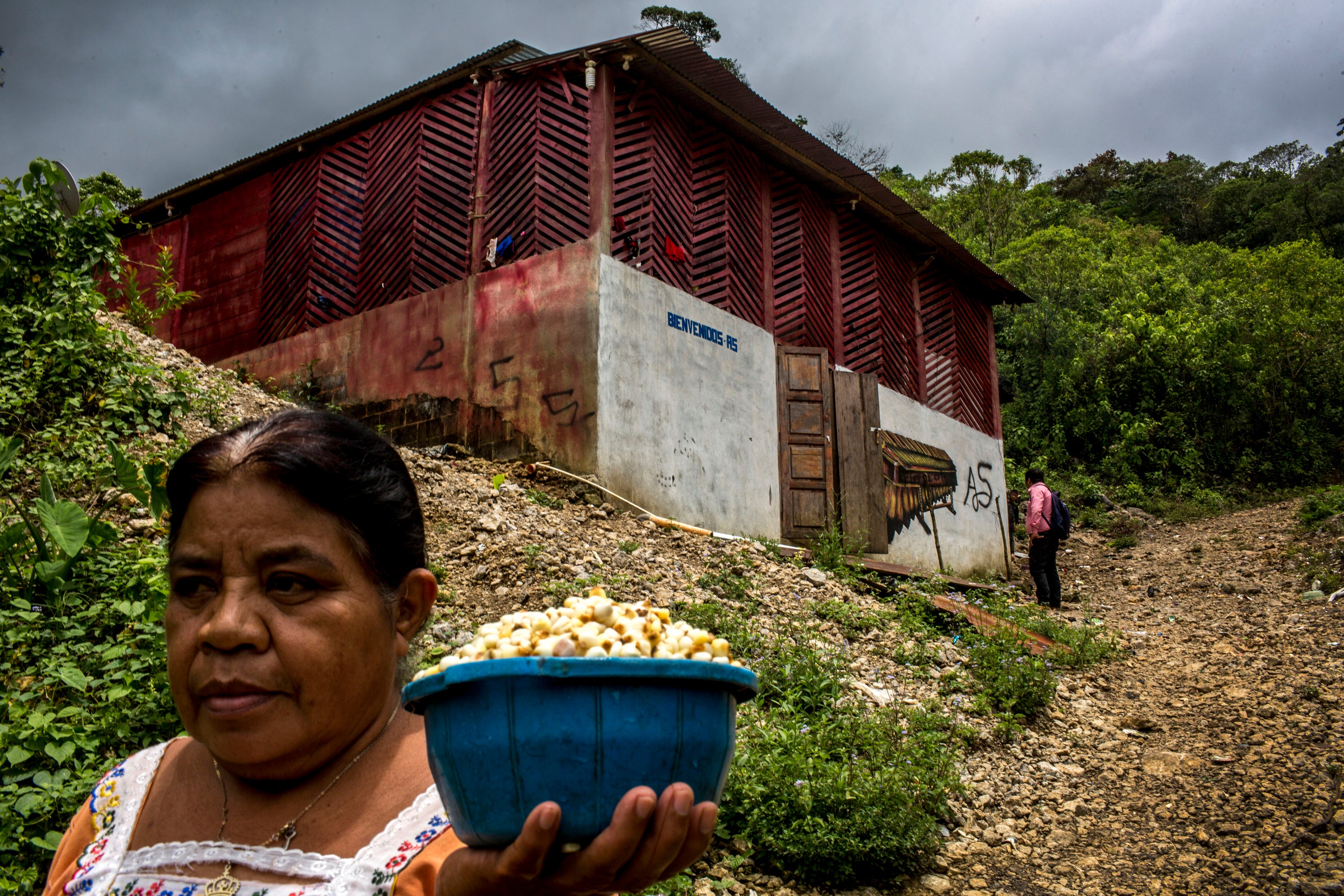
“Good morning,” Pop said in Q’eqchi, the language of Chicamán. “I hope we didn’t surprise you.”
By the time a federal judge ordered an end to the Trump administration’s family separation policy in June 2018, more than 5,000 children had been separated from their parents.
More than 1,000 parents were deported alone, their hands and feet cuffed, on charter flights back to the countries they had fled.
Once they arrived in capital cities, some took buses or taxis back to their hometowns. Others went into hiding to avoid the threats they had attempted to escape. Many more sold their homes to pay smugglers for the failed journeys north, ending up displaced in their own countries.
Pedro C was separated from his son Wilson in August 2017 – nearly a year before the Trump administration made the policy public – as part of an unannounced pilot programme in El Paso. The boy was then 13.
Pedro (Justice in Motion asked that his full last name be withheld to maintain his safety) was held in a West Texas detention centre. He was not told where his son was taken. When he was flown back to Guatemala City, he assumed his son would be there waiting.
He called his wife from the airport. She told him Wilson was still in the US.
“We will never see our son again,” he thought to himself.
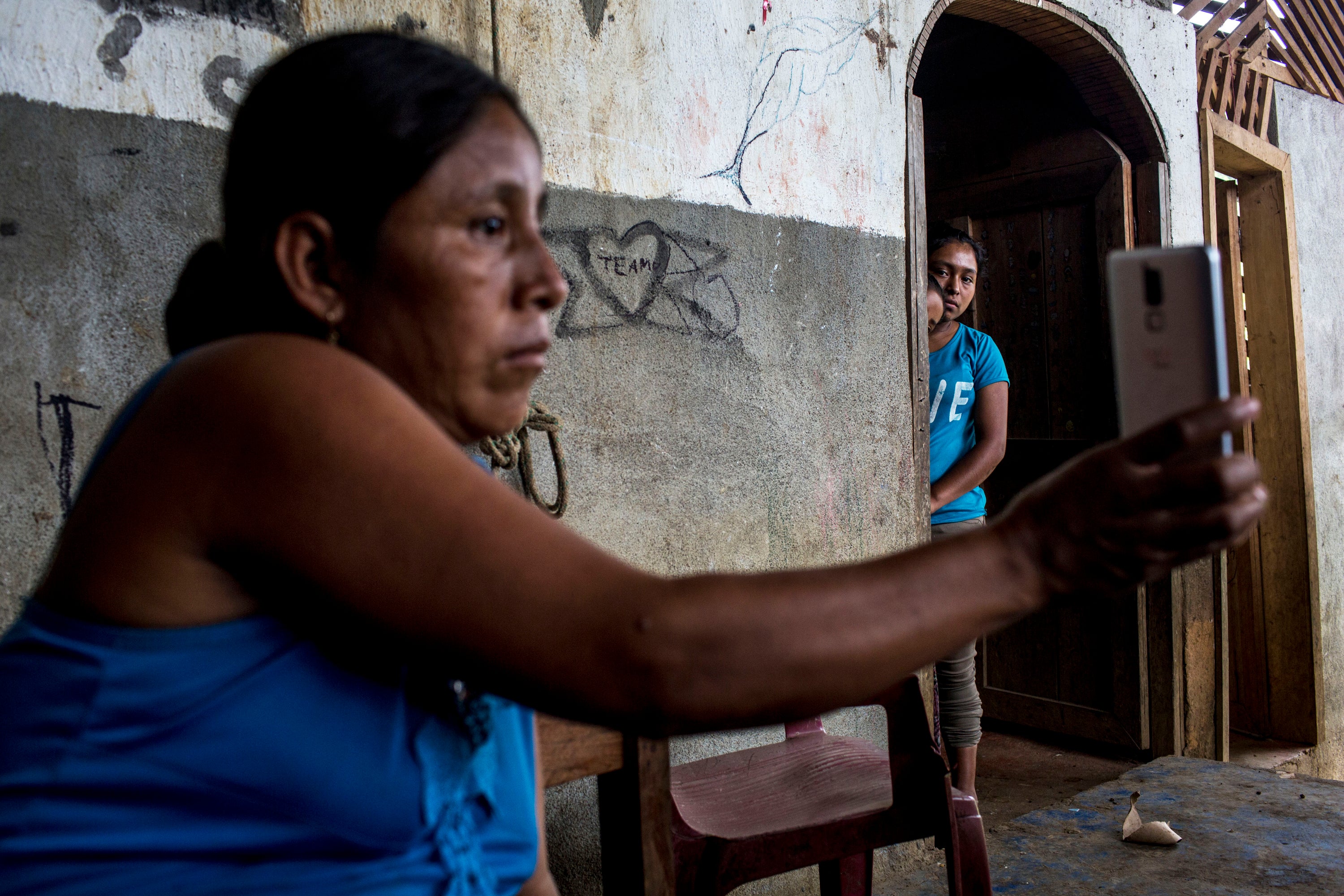
They had put up their home as collateral to pay the smuggler who arranged their journey to the border. Within weeks of Pedro’s return, it was seized.
Pedro didn’t realise it but he had fallen off the US radar. He had no lawyer. The US government had no working contact information for him.
He drove into town once a week to make a video call to Wilson, who was living in Arkansas, attending high school and working on a farm.
Wilson turned 14, then 15, then 16, then 17. Although he was in the US, the government had lost track of him, too.
The Department of Health and Human Services had a phone number for Wilson’s uncle, who had become the boy’s legal guardian. But when investigators called, the number was dead. Wilson’s uncle, it turned out, had been deported in 2018. After that, Wilson lived mostly alone.
Nearly all of the “unreachable” parents are in communication with their children but the US government can’t locate the parent or the child, making reunification impossible.
This has become a challenge for President Joe Biden. Days after taking office, he signed an executive order creating a task force to reunite the families.
He searched for parents in part because he knew that if his life had gone slightly differently, he could have been one of those separated from a child at the border
He said: “We are going to work to undo the moral and national shame of the previous administration that literally, not figuratively, ripped children from the arms of their families at the border.”
Suddenly, the government wanted to know where the parents were. Lawyers working alongside the government started poring through the Trump administration’s incomplete data. They broadcast radio ads throughout Central America. A narrator said in Spanish: “If you or someone you know was separated from a child at the border with the United States between 2017 and 2018, this information will interest you.”
Back in Chicamán, Pedro never heard the ad. Nor had he heard that a new US president had launched a family reunification task force.
He wasn’t surprised that no one had tried to reach him.
Pedro knew other people deported. He knew deportation was final. The US government doesn’t come knocking on your door in rural Guatemala to invite you back, he thought.
The morning sun was rising over Chicamán when Pedro looked out from his hut and stared, bewildered, at Pop.
“Good morning,” Pop said. “I work with a group of lawyers from the United States.”
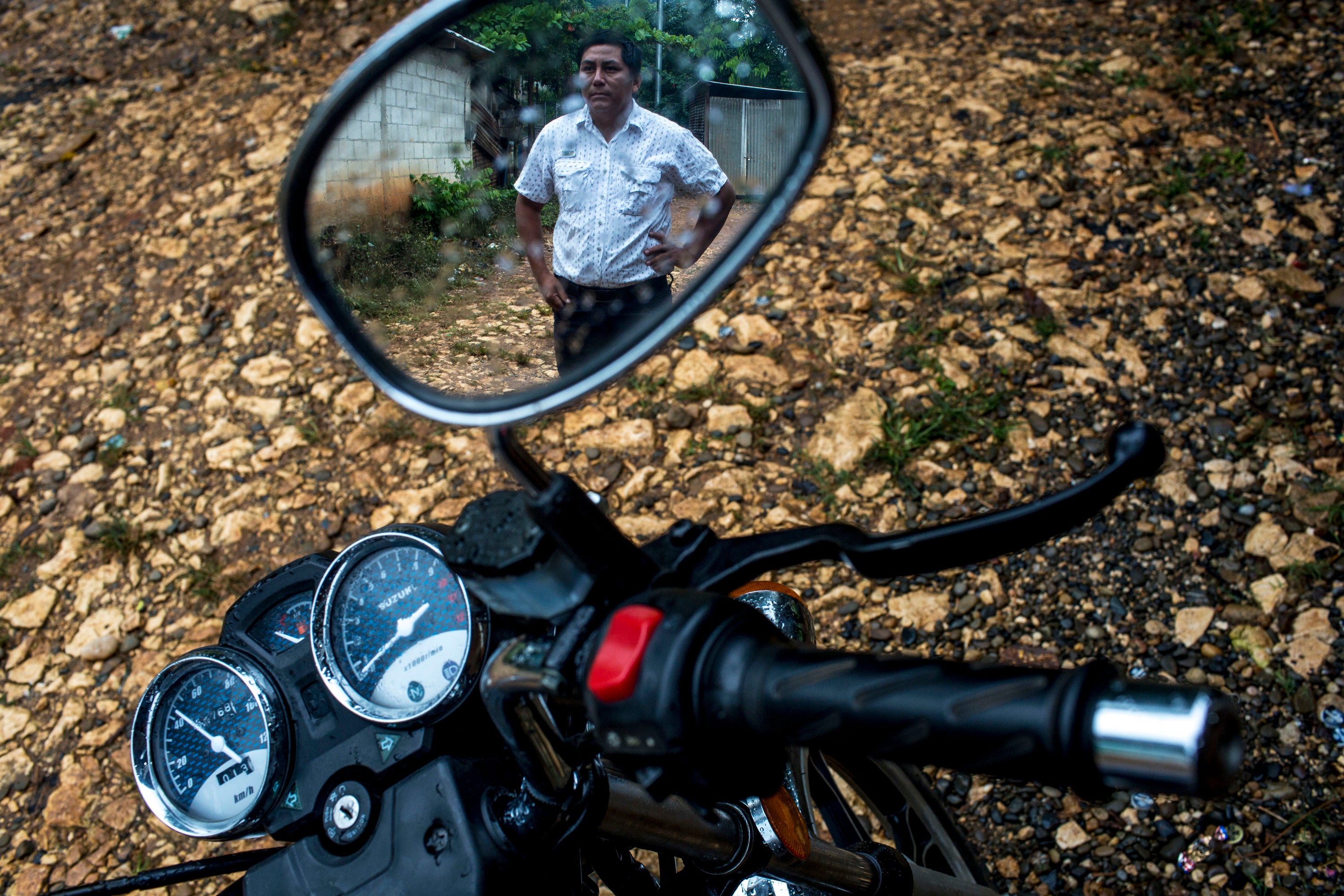
Pedro’s expression did not change. He was wearing blue jeans and rubber boots. He had a square jaw and a buzz cut. He invited Pop to sit down on a plastic chair in his one-room hut.
Pop said: “We know some migrants have their rights violated, some are separated from their children. Our organisation focuses on ensuring the rights of migrants. I understand you tried to migrate to the United States.”
Pedro responded, his eyes narrowing: “How did you know that? Yes, it’s true. I went with my son.”
Pop could read the distrust on his face. It was an expression he knew well. Just an hour earlier, as he searched for another separated family, a group of community leaders had come upon him. One demanded, angrily: “What are you doing here?”
On other searches, mainly in larger towns and cities, the mistrust was so deep that people were sometimes unwilling to even offer directions, or point out the homes of relatives. Families refused to open their doors.
They worried that he was there to seize their land, or that he had been sent by the US to punish them again for crossing the border illegally.
But the truth was that Pop was one of his community’s most respected lawyers, a man who grew up selling food on a roadside in Guatemala. Many of his own relatives had migrated illegally to the US.
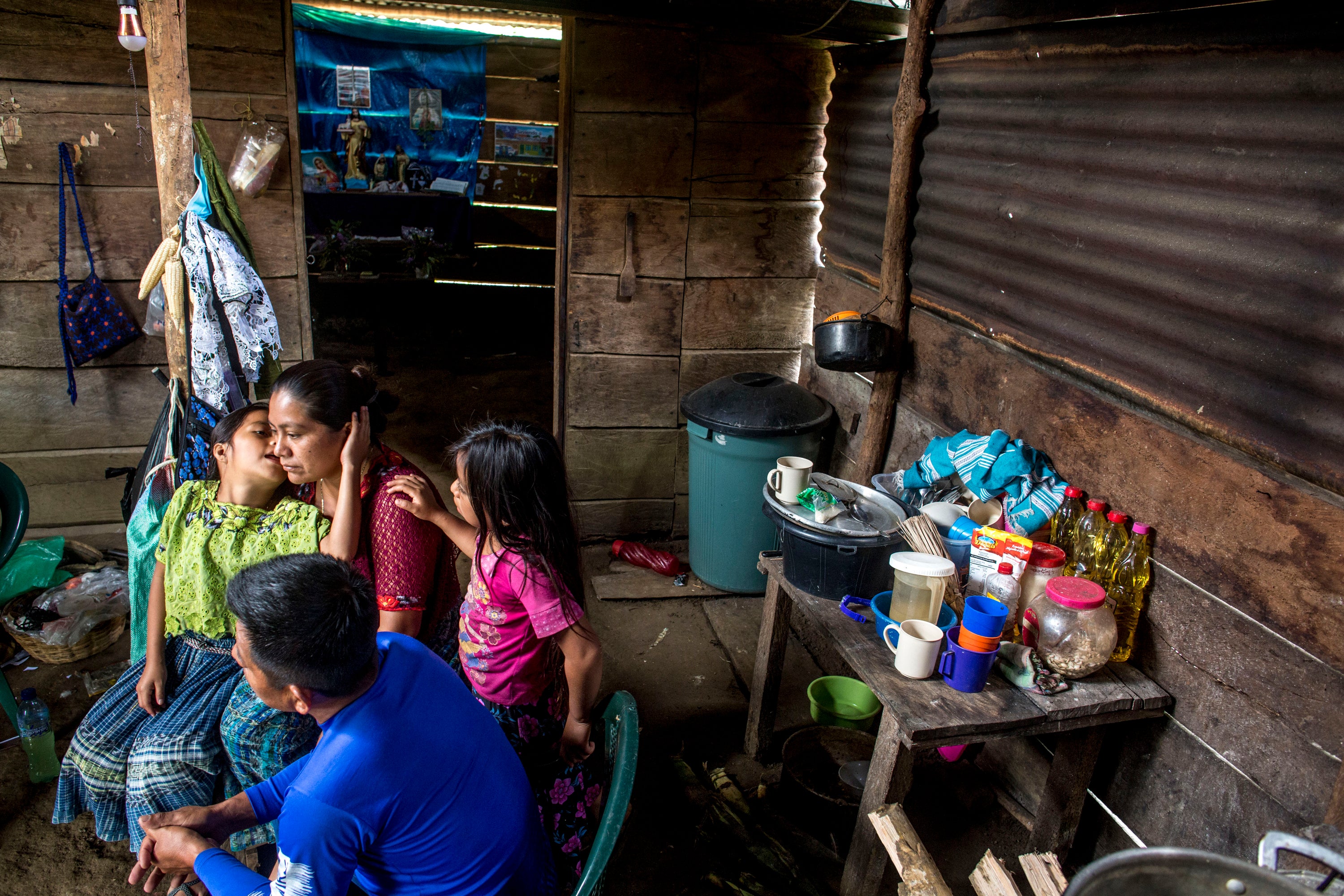
He searched for parents in part because he knew that if his life had gone slightly differently, he could have been one of those separated from a child at the border.
He leaned closer to Pedro and said: “I know that our brothers migrate to the United States because they have needs, because they need work, because they need money.”
Pedro described his WhatsApp calls with his son: “Whenever I hear his voice, I start to cry.”
Then Pop turned to what he could offer.
He had to be careful about suggesting a path to reunification. It wasn’t his job to make promises. He was meant to make the unreachable families reachable; to connect them to lawyers in the US who could facilitate their return. The programme has reunited about 36 families so far.
But the process has been slowed by logistical hurdles. Hundreds are waiting for updates on when they will be reunified.
“Are you willing to talk to an attorney in the US?” Pop asked.
Pedro said: “Yes, I am. No matter what they want to ask me or tell me, I’m interested.”
Pop took notes. Pedro was now joined by his wife and two young daughters.
He said: “I did not expect this. I did not think that someone was worried or asking for information about me.”
Pop tried to wind down the interview by calibrating expectations.
“I promise nothing yet,” he said. “We are just going to wait. We are going to send the information.”
But it was too late. For someone to come all this way, carrying papers with his name… Pedro thought: “It’s the beginning of something.”
He followed Pop out the door. He said: “I thank you a lot. I thank you for coming. As I said, I need help. We need your help.”
© The Washington Post




Join our commenting forum
Join thought-provoking conversations, follow other Independent readers and see their replies
Comments